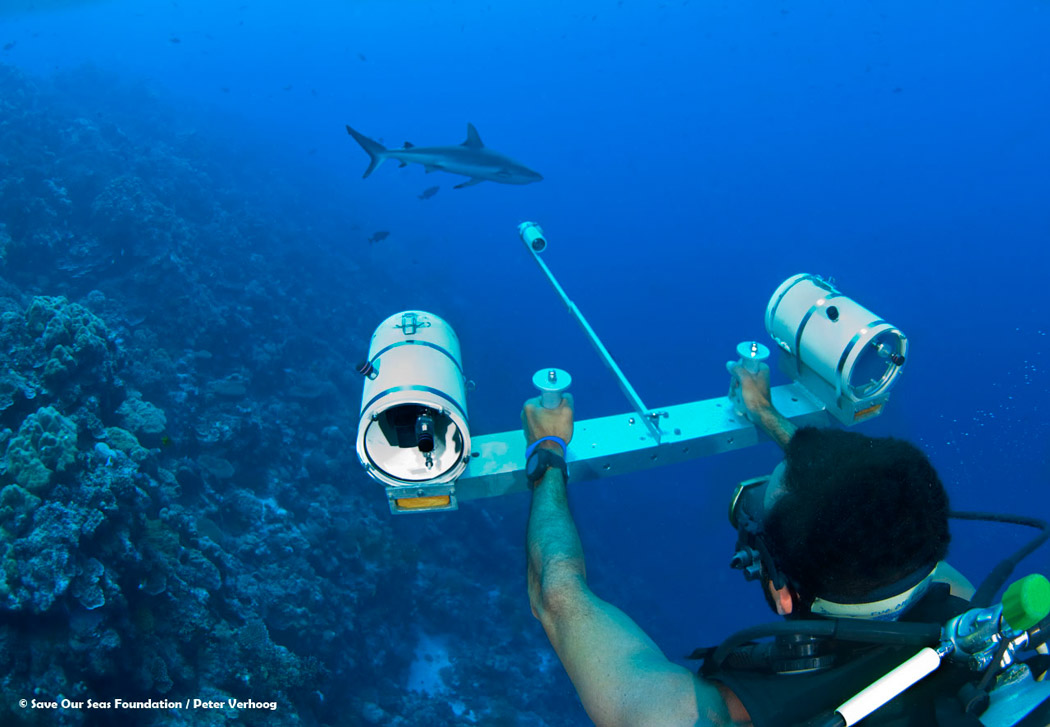Inhabitants of world’s first shark sanctuary still at risk. Surveys of sharks in Palau indicate numbers are almost seven times lower in more remote areas of the island nation. Image: Save Our Seas Foundation / Peter Verhoog
The global battle to safeguard declining shark populations has only just begun according to a recent scientific study, which found that even the world’s pioneering shark sanctuary is still experiencing high levels of illegal fishing.
This shark sanctuary was declared by Palau in 2009, and prohibits commercial fishing for sharks within an ocean area approximately the size of France (629,000 square kilometres). But recently published research showing that while shark populationsare doing well in the main island group of Palau, shark numbers are almost seven times lower in the more remote southwest part of the sanctuary.
“Somewhat to our surprise, we found remoteness offered sharks little or no protection in this vast marine sanctuary,” says Dr Gabriel Vianna, study lead author from the University of Western Australia and the Australian Institute of Marine Science. “Many of these remote reefs were covered in derelict fishing gear, a clear sign that illegal, unreported and unregulated fishing is targeting sharks, despite the establishment of the sanctuary.”
Ms Tova Bornovski, Director of the Micronesian Shark Foundation explains that “shark populations may be much higher near centres of human population because the diving industry is very active in these areas, and we believe that this may act as a deterrent to illegal fishers.”
The team’s findings highlight a number of important issues.
“Our study shows that there is a clear need for more baseline surveys of shark abundance in other sanctuaries,” explains Dr Jessica Meeuwig of the University of Western Australia. “Without such comprehensive information it is difficult to determine the effectiveness of shark sanctuaries.”
“The problem with illegal fishing we have documented here is probably not isolated to Palau,” says Dr Mark Meekan of the Australian Institute of Marine Science. “Modern fishing fleets are no longer hindered by the remoteness of ocean regions, meaning sharks have lost this natural protection.
“Sanctuaries, like the one in Palau, do represent a promising instrument for shark conservation, but to ensure they are more than just ‘paper parks’ governments need to invest in effective surveillance and enforcement. While these tasks can be costly for governments with limited resources, the benefits of maintaining healthy shark populations are increased tourism revenue and ecosystem stability.”
The paper “Indicators of fishing mortality on reef-shark populations in the world’s first shark sanctuary: the need for surveillance and enforcement” by Gabriel Vianna, Mark Meekan, Jonathan Ruppert, Tova Bornovski and Jessica Meeuwig appears in the journal Coral Reefs.
For further information, please contact:
Dr Mark Meekan
Principal Research Scientist
m.meekan@aims.gov.au
Phone: +61 (0) 8 6369 4039, AWST


